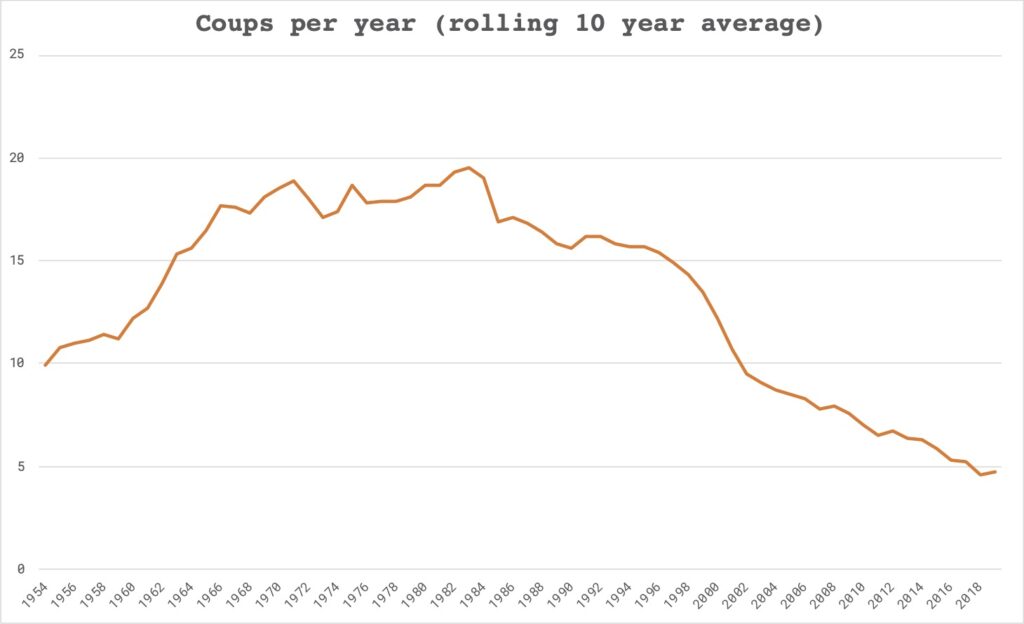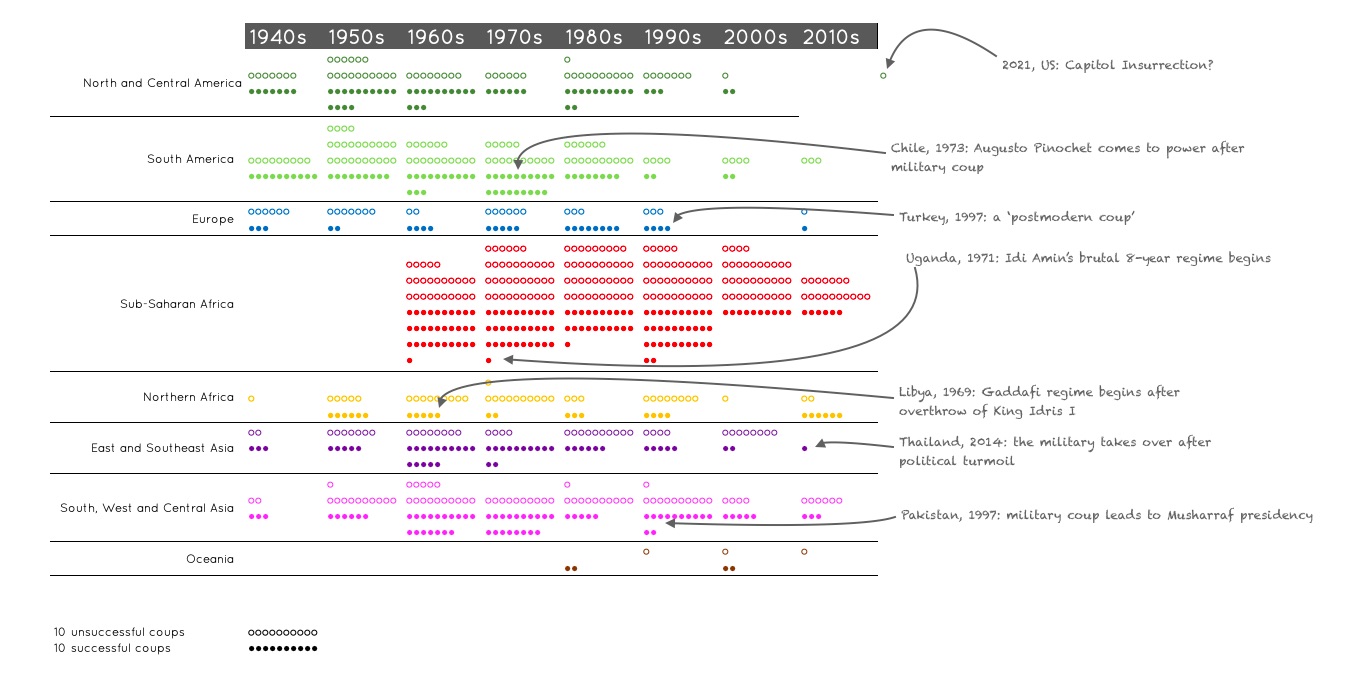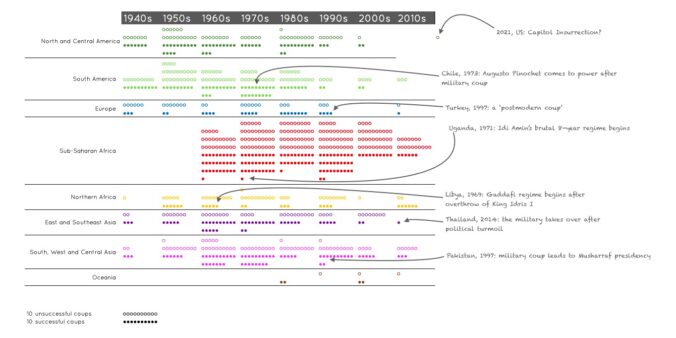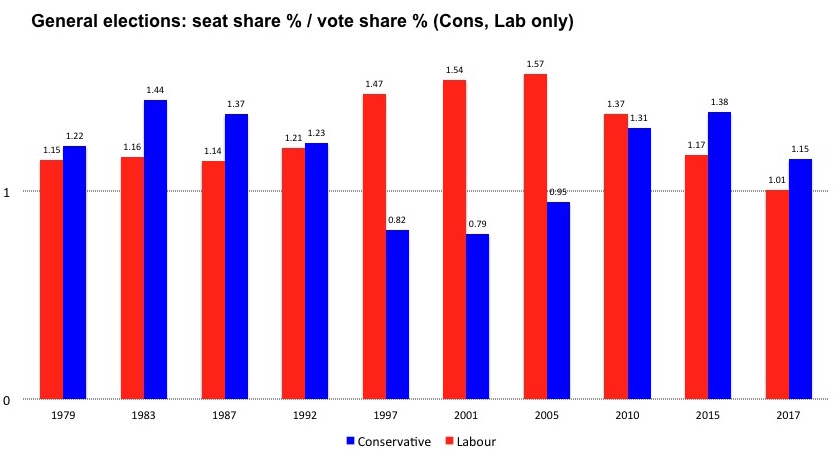Was the violent invasion of the US Capitol on 6th January this year a coup? It certainly had the hallmarks of a coup, even it it might be expedient for politicians to refer to it as insurrection.
Because a coup is distinctly un-American, right?
Well, up until now.
The Cline Center of University of Illinois run the Coup D’état Project, and their data reveal a story of coups through the last 75 years.
The history of coups in the post-war period is dominated by personalities – strongmen such as Idi Amin and Col. Gaddafi. But those are the winners – leaders who took power and held it for many years.
So how successful are coups? According to the Project’s data, coups are a less than 50:50 shot – they are successful 45 per cent of the time.
The coup heyday was the 1960s and 70s, in the post-War, post-colonial settlement period where independent statehood was still nascent in many parts of the world. And although Latin America has a reputation for coups, fuelled by spy movies, sub-Saharan Africa is the most coup-prone region.
Since 1980 there has been a move to relative stability – the number of coups has declined, with the 2010s having the fewest of any decade. The last ten years has seen only 17 successful coups, with 30 attempted or conspired.

Some other insights… since 1945:
- Although Sub-Saharan Africa is the most coup-heavy region, Bolivia is the most coup-prone nation with 37, including 16 successful coups.
- Coups are more of a Spring / Autumn thing. November is the month with most coups, closely followed by October, April and March.
- 1975 was the busiest year for coups with 32. 1979 was the most successful with 18 out of 22.
Anyway, here is the visual history – click for the the full size image.

So was 6th Jan a coup? The Cline center say… maybe.









